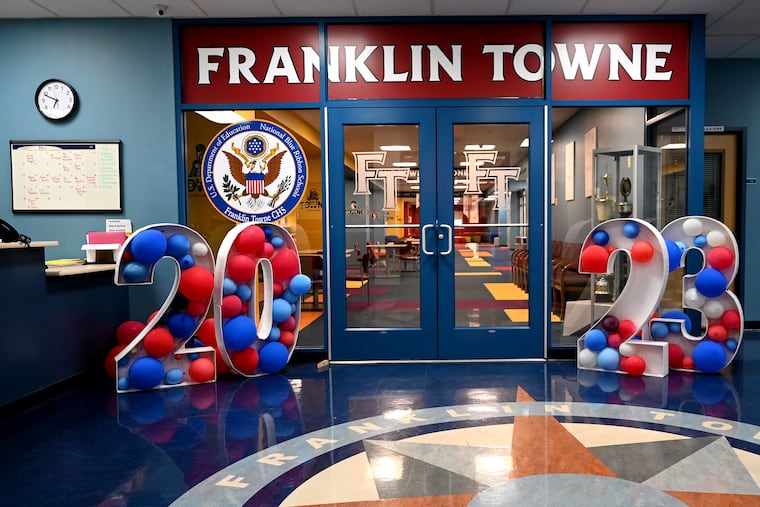Inequitable charter school enrollment practices hurt our public schools
It's long past time that Pennsylvania’s lawmakers and school leaders do something about it.

Charter schools are publicly funded but privately managed — as the logic goes, charters are given more autonomy in exchange for increased accountability. Charter schools have more freedom than district schools in how they enroll students, including running their own recruitment, application, and lottery systems. Last month, we learned that Franklin Towne Charter High School abused this freedom by manipulating its lottery to keep certain kids out. This has resulted in a charter school with a majority white student population in Philly, where only 13% of district students are white.
People all across the commonwealth are rightfully outraged. As a researcher who studies school choice enrollment and school diversity in Pennsylvania, and a former teacher at a Philadelphia charter school that serves students from every zip code in the city, I am outraged, too.
Unfortunately, this is not just a Franklin Towne problem. Charter schools around the country have used inequitable enrollment processes to keep out students they don’t want to serve, including students with disabilities, English learners, and low-income students. And in the past, other charter schools in Philly have been caught doing exactly that.
Nationally, the number of white flight charter schools such as Franklin Towne — charters with disproportionately high numbers of white students in racially diverse districts — is on the rise, making school segregation worse. If that isn’t bad enough, when any kind of charter school enrollment grows, it makes segregation worse for Black and Latino students, even in public schools.
When charter schools make school segregation worse, it limits opportunities for all kids. Though there are many excellent schools that serve mostly Black and brown students, in general, students of color who attend segregated schools tend to have fewer opportunities and worse outcomes. On the other hand, students of color and white students benefit from attending diverse schools, including better test scores, graduation rates, and social cohesion.
We should be worried and angry about inequitable charter school enrollment practices and segregation generally — not just at Franklin Towne. Luckily, there are steps educators and policymakers can take to prevent this.
Local charter leaders should make public commitments to equitable enrollment practices and combating school segregation. There is a growing movement of charter schools that have done so by joining the Diverse Charter Schools Coalition. These schools have taught us how charters can enroll and equitably serve students that reflect the local community. There is no excuse for Philadelphia’s charter schools not to do the same.
At the same time, serving all students cannot be voluntary. Authorizers — the organizations that decide which charter schools can open and which need to close — must hold charter schools accountable for equitable enrollment processes. In Pennsylvania, in-person charter schools are all authorized by local districts. Commendably, the School District of Philadelphia has grown its authorizing office and focused on equitable enrollment practices. Its work is part of the reason we know that Franklin Towne is not alone in abusing its autonomy.
However, Pennsylvania’s charter school law — which has only been substantively updated once since its passage in 1997 — limits what authorizers can do. Currently, there is no legal way for charter schools or authorizers to prioritize diversity. The charter school law says that charters can have a mission to serve “at-risk students,” and the state has ruled that this can justify charter schools with certain kinds of homogeneous populations.
To be clear, this is a helpful provision that allows charter schools to use affirming approaches like Afrocentric curricula or dual-language immersion. However, Pennsylvania legislators should also explicitly permit the creation of intentionally diverse charter schools. Harrisburg can also pass legislation that empowers authorizers to hold charters accountable for reflecting their local district, as states like New York have done.
Charter schools are not going anywhere anytime soon; they educate approximately 65,000 young people in Philadelphia and are beloved by many families. But charter schools’ practices and the Pennsylvania charter school law have made our school systems less equitable. It’s long past time that Pennsylvania’s lawmakers and school leaders do something about it.
Sophia Seifert is a Philadelphia-based education researcher and former Philadelphia middle and high school science teacher.